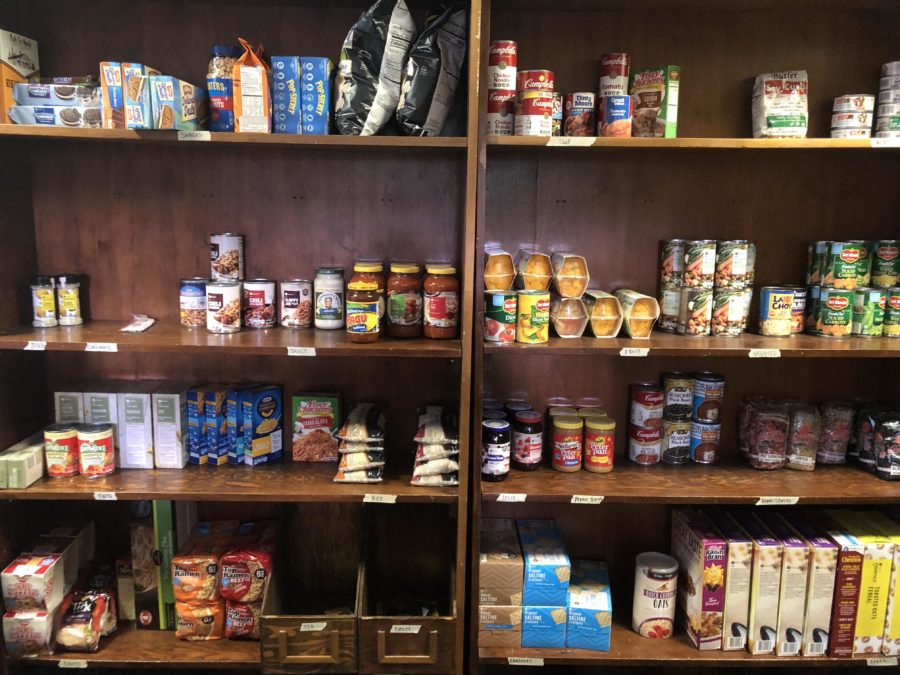The cost of food is proving too much for almost half of Loyola students to afford, according to data from the Campus Climate Assessment.
The results of the assessment, which showed that over 47 percent of student respondents had financial hardships affording food, were followed by several listening sessions led by Chief Diversity Officer Sybol Anderson. One topic that came up in every session, which included students, faculty and staff, was food insecurity among Loyola students.
“The fact that anybody on our campus is dealing with food insecurity is already just shocking enough, but the numbers of students that reported was really of deep concern to faculty, staff and students alike,” Anderson said.
She added that the university narrowed down priorities to take action on moving forward after the Campus Climate Assessment results, and food insecurity was number one.
Students have already begun to take steps toward helping relieve hunger concerns. The Loyola Music Therapy Student Association and the Sigma Alpha Iota music fraternity teamed up to make a food pantry.
Kelly Cuppet, president of the Loyola Music Therapy Student Association, said that the two groups came up with the idea after talking to professors about the results of the campus climate listening sessions.
“We have two service-oriented organizations, and we have the resources and the space to do something about it,” Cuppet said.
The pantry, which opened on Monday, April 30, is set up in the College of Music and Fine Arts box office in the front of the Communications/Music Complex.
Within a day, students and faculty were able to fill the pantry with canned goods, snacks and toiletries.
Cuppet said that donations can be brought directly to the pantry Monday through Friday from 12:30 p.m. to 1:30 p.m. or to the College of Music and Fine Arts office at any other time.
She also said that she hopes students who are in need of food realize that it isn’t something to be ashamed of.
“I think that skipping meals—in general—just a lot of people accept it as like part of the college experience, and that’s not how it has to be,” she said.
The pantry also contains a survey that students can use to request foods that are not in the pantry.
Cuppet said that not only does the pantry supply food, but they have also made a list of tools that students can use to learn how to cook food.
Anderson said that the food pantry is a good start, and the Office of Student Affairs has begun looking for a longer term and more permanent solution to the issue of food insecurity by partnering with other parts of campus like the food studies program and Sodexo.
Food studies professor Danny Mintz started his own survey in order to dig deeper into the issue of food insecurity on campus.
“Our hope is that through the survey we will be able to understand in a lot more detail whether and to what extent students are experiencing food insecurity, when they tend to experience it, and in a broad sense, what their subjective experience of the food environment and food access on campus is,” Mintz said.
He added that he hopes that the survey results lead to the implementation of more “effective, efficient and targeted” programs to address the issue of food insecurity.
“I hope it also gives the campus community a clearer sense of what we’re talking about when we talk about student hunger,” he said.
The survey begins on May 2 and will be available for students to take in Wolfmail. The results are projected to be announced in the fall 2018 semester.
Anderson said that the realization of hunger on Loyola’s campus is disheartening, but she hopes that it will create change at the university.
“It’s a little distressing to discover that so many people on our campus are struggling and that students, in particular, are dealing with hunger issues, but you know we’re immensely grateful to be made aware of it,” she said.















